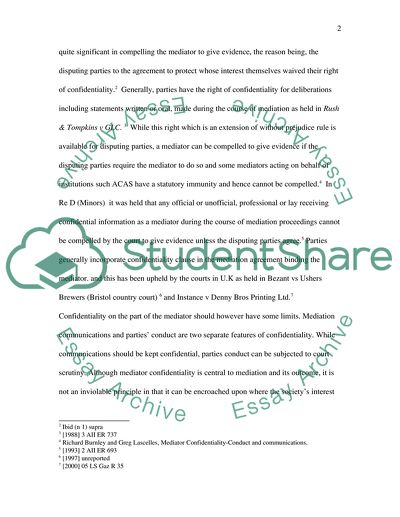Cite this document
(The Principle of Confidentiality in Relation to Mediation Dissertation, n.d.)
The Principle of Confidentiality in Relation to Mediation Dissertation. Retrieved from https://studentshare.org/law/1736472-alternative-dispute-resolution-llb-course
The Principle of Confidentiality in Relation to Mediation Dissertation. Retrieved from https://studentshare.org/law/1736472-alternative-dispute-resolution-llb-course
(The Principle of Confidentiality in Relation to Mediation Dissertation)
The Principle of Confidentiality in Relation to Mediation Dissertation. https://studentshare.org/law/1736472-alternative-dispute-resolution-llb-course.
The Principle of Confidentiality in Relation to Mediation Dissertation. https://studentshare.org/law/1736472-alternative-dispute-resolution-llb-course.
“The Principle of Confidentiality in Relation to Mediation Dissertation”, n.d. https://studentshare.org/law/1736472-alternative-dispute-resolution-llb-course.


